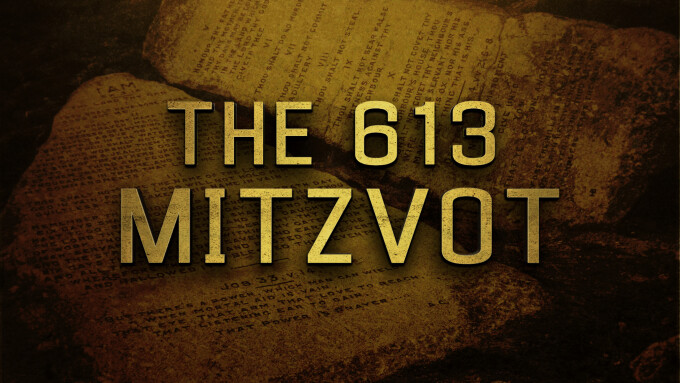The 613 Mitzvot: 21-25

We are often asked to do teachings on the 613 commandments found in the Jewish faith. Understandably, such a teaching or teaching series would be an immense undertaking. However, we thought we may be able to go through it, at least in part, in our blogs. This is an ongoing blog series that we will do at different times without any real schedule planned. We will not be going into great depth in this series.
The format for these blog posts will be simple. We will cite a traditional rabbinic commandment as found in the AENT (Aramaic-English New Testament), provide the Scripture that it is supposed to be based from, indicate if we agree that it is a commandment we can do today or if it is one that cannot apply today and then why or why not. Then we will give a few notes or thoughts as to why believe it can or cannot be applied today. Last time we looked at the first five, this week we will take a brief look at five more.
Commandment: On respecting the Sanctuary
Leviticus19:30 (ESV)
“You shall keep my Sabbaths and reverence my sanctuary: I am (YHWH)the Lord.”
Notes:
Spiritually speaking we agree this commandment still applies today. If there was a temple or tabernacle today, then we would absolutely agree that it should be respected, revered as it would be the place He dwells. However, there does not exist such a place today. Spiritually speaking Paul states that we are a Temple unto God, and as such we should respect ourselves and others. We should not profane ourselves with what is unholy whether it be visually, physically, or mentally.
Commandment: On guarding the Sanctuary
Numbers 18:4 (ESV)
“They shall join you and keep guard over the tent of meeting for all the service of the tent, and no outsider shall come near you.”
Notes:
Much like the previous commandment we agree currently on a spiritual level that it should be applied. It cannot, however, be applied literally as intended as the tent of meeting, tabernacle, or temple do not currently exist. Spiritually speaking Paul stated we are a Temple unto God, and as such we should guard ourselves. This includes protecting ourselves from not only physical harm but spiritual and emotional as much as possible. This can be done by being careful what we expose ourselves and our children to visually, physically, and mentally.
Commandment: On Levitical services in the Tabernacle
Numbers 18:23 (ESV)
But the Levites shall do the service of the tent of meeting, and they shall bear their iniquity. It shall be a perpetual statute throughout your generations, and among the people of Israel they shall have no inheritance.
Notes:
We disagree with this as a literal commandment to be followed today. A built temple does not currently exist till the 1000 year reign. The criteria will exist again (Ezekiel 40-48) to carry out this commandment. An established Earthly priesthood is not currently organized and available to carry out this commandment
Commandment: On Cohanim (Priests) washing hands & feet before entering Temple
Exodus 30:19 (ESV)
“with which Aaron and his sons shall wash their hands and their feet.”
Notes:
We agree this is a literal commandment, however it is not one that can be followed today. A built temple does not currently exist till the 1000 year reign. The criteria will exist again (Ezekiel 40-48) to carry out this commandment. An established Earthly priesthood is not currently organized and available to carry out this commandment
Commandment: On kindling the Menorah by the Cohanim (Priests)
Exodus 27:21 (ESV)
In the tent of meeting, outside the veil that is before the testimony, Aaron and his sons shall tend it from evening to morning before (YHWH) the Lord. It shall be a statute forever to be observed throughout their generations by the people of Israel.
Notes:
We see this as a literal commandment to be followed, however, it cannot be followed today. A built temple does not currently exist till the 1000 year reign, nor do we have the tent of meeting. The criteria will exist again (Ez. 40-48) to carry out this commandment. An established Earthly priesthood is not currently organized and available to carry out this commandment
We hope this has helped bring a little clarity to the fifth set of 5 commandments and their applicability to our lives today, at least as we currently understand them. Aside from ourselves, keeping the cultural understanding and Scriptural context are our greatest obstacle to understanding, and thus obeying, the ways of our Creator. Each day we must choose whether to obey or disobey thereby choosing whom we are serving.
Shalom
